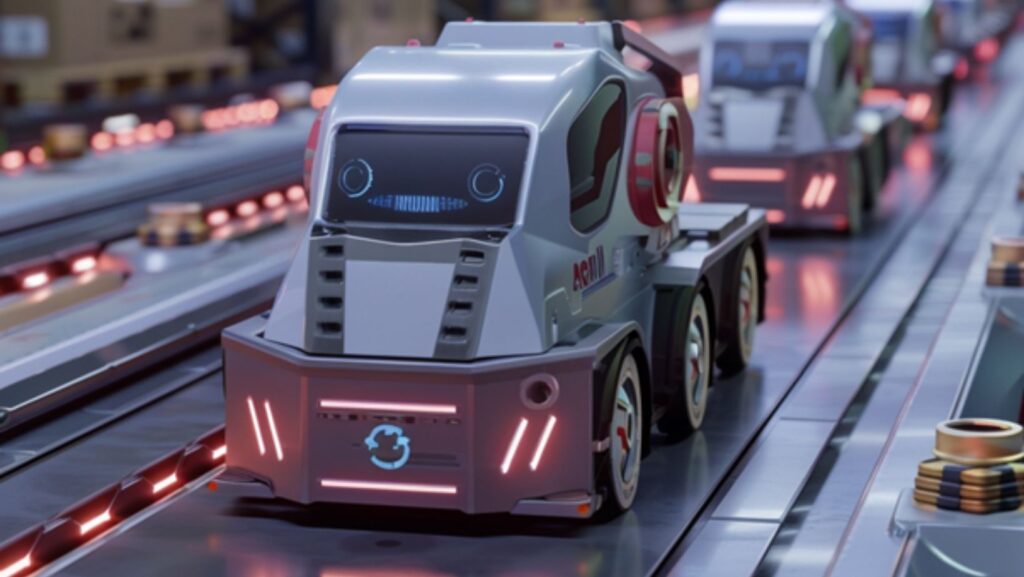The State Of The Logistics Landscape: Challenges And Technologies That Solve Them
The modern logistics landscape is characterized by rapid technological advancements and increased customer expectations. With the proliferation of e-commerce, businesses are under constant pressure to deliver products quickly, efficiently, and reliably. The industry is increasingly leveraging advanced technologies to enhance operational efficiency and transparency.
- AI-driven analytics and automation are optimizing supply chain processes, from inventory management to last-mile delivery.
- IoT devices provide real-time tracking and monitoring, ensuring better asset management and proactive maintenance.
- Blockchain technology is being adopted to enhance security and traceability in supply chains.
Amid these technological shifts, logistics companies are also focusing on sustainability, striving to reduce their environmental impact through smarter route planning, energy-efficient warehouses, and eco-friendly transportation options. This dynamic landscape requires continuous innovation and adaptability to meet the evolving demands of the global market.
The Role Of AI In Logistics Operations: Revolutionizing Process At Every Step
The importance of AI in logistics is characterized by the challenges the industry is dealing with right now. One of the foremost issues is the complexity of global supply chains, which involves coordinating multiple stakeholders, regulatory environments, and transportation modes across diverse geographies.

This complexity often leads to inefficiencies, delays, and increased costs.
Another significant challenge is the growing demand for faster delivery times, driven by the rise of e-commerce and heightened customer expectations. Balancing speed with cost-effectiveness requires sophisticated logistics planning and real-time data analytics.
Additionally, labor shortages, particularly in roles like truck driving and warehouse operations, strain the industry’s capacity to meet demand. The need for sustainable practices adds another layer of difficulty, as logistics companies must reduce their carbon footprint and adhere to environmental regulations without compromising service quality.
Lastly, cybersecurity threats pose a growing risk, with logistics systems becoming increasingly digital and interconnected, making them vulnerable to cyber-attacks and data breaches.
Addressing these challenges requires a strategic, in-depth approach to data analysis, faster and more confident decision-making, and smarter workload distribution. All these goals are covered within an AI-based framework.
-
Optimizing Supply Chain Management
AI-powered systems are redefining supply chain management by providing real-time visibility and predictive analytics. These technologies enable companies to anticipate demand fluctuations, optimize inventory levels, and reduce waste. Machine learning algorithms analyze vast amounts of data from various sources, such as sales trends, weather patterns, and social media activity, to forecast demand with remarkable accuracy. This helps businesses make informed decisions about production, storage, and distribution, ultimately leading to cost savings and improved service levels.
-
Enhancing Route Planning And Fleet Management
One of the most significant impacts of AI in logistics is in route planning and fleet management. Traditional route planning methods often rely on historical data and fixed schedules, which can be inefficient and costly. AI, on the other hand, uses real-time data and advanced algorithms to optimize routes dynamically. This results in reduced fuel consumption, lower emissions, and faster delivery times. Additionally, AI-driven fleet management systems can monitor vehicle health, predict maintenance needs, and schedule repairs proactively, minimizing downtime and extending the lifespan of assets.
-
Improving Warehouse Operations
Warehousing is another area where AI is making substantial inroads. Autonomous robots and AI-powered systems are streamlining warehouse operations by automating repetitive tasks such as picking, packing, and sorting. These robots can work around the clock, increasing productivity and accuracy while reducing labor costs. Moreover, AI-driven warehouse management systems (WMS) optimize space utilization, manage inventory more effectively, and reduce the risk of human error. The integration of AI with Internet of Things (IoT) devices further enhances the efficiency of warehouse operations by providing real-time data on inventory levels, equipment status, and environmental conditions.
-
Enhancing Customer Experience
In the era of e-commerce, customer expectations for fast and reliable deliveries are higher than ever. AI is helping logistics companies meet these demands by providing better customer service and more accurate delivery estimates. AI-powered chatbots and virtual assistants offer 24/7 customer support, answering queries and resolving issues quickly. Additionally, AI algorithms analyze customer data to personalize recommendations and anticipate future needs, enhancing the overall shopping experience. Real-time tracking and predictive delivery notifications keep customers informed about their orders, building trust and loyalty.
-
Addressing Security And Fraud
Security and fraud prevention are critical concerns in the logistics industry. AI technologies are playing a vital role in enhancing security measures and mitigating risks. AI-driven surveillance systems use advanced image recognition and pattern analysis to detect suspicious activities and unauthorized access in warehouses and transportation hubs. Machine learning algorithms can also identify fraudulent transactions and anomalies in financial data, helping companies prevent losses and safeguard their operations.
-
Overcoming Labor Shortages
The logistics industry has been grappling with labor shortages, particularly in roles such as truck driving and warehouse staffing.

AI and automation offer viable solutions to this challenge. Autonomous vehicles and drones are being developed to handle deliveries, reducing the reliance on human drivers. In warehouses, collaborative robots (cobots) work alongside human employees, taking over physically demanding tasks and allowing workers to focus on more complex and value-added activities. This not only addresses labor shortages but also improves working conditions and job satisfaction.
-
Sustainability And Environmental Impact
Sustainability is a growing concern for the logistics industry as companies seek to reduce their environmental footprint. AI is contributing to sustainability efforts by optimizing resource usage and minimizing waste. For instance, AI-driven route optimization reduces fuel consumption and greenhouse gas emissions. Smart packaging solutions powered by AI help minimize material usage and improve recyclability. Additionally, AI systems can monitor and manage energy consumption in warehouses, leading to more sustainable operations.
AI In Logistics: Exploring The Road Ahead
The evolution of logistics is undoubtedly intertwined with the advancements in AI. As technology continues to evolve, we can expect even greater integration of AI in logistics operations. The rise of 5G networks, edge computing, and enhanced data analytics will further accelerate the adoption of AI, enabling real-time decision-making and seamless connectivity across the supply chain.
However, the widespread adoption of AI in logistics also presents challenges. Companies must invest in robust cybersecurity measures to protect sensitive data and ensure compliance with regulations. Moreover, the transition to AI-driven operations requires significant investment in technology and workforce training. To fully realize the potential of AI, the logistics industry must foster a culture of innovation and collaboration with global technology partners, embracing new technologies and reimagining traditional processes.
In conclusion, AI is poised to revolutionize the logistics industry by addressing key challenges and unlocking new opportunities. From optimizing supply chain management and route planning to enhancing customer experience and sustainability, AI is transforming logistics into a smarter, more efficient, and customer-centric industry. In the industry’s future, the continued integration of AI will be crucial in driving the next wave of innovation and growth in logistics.



